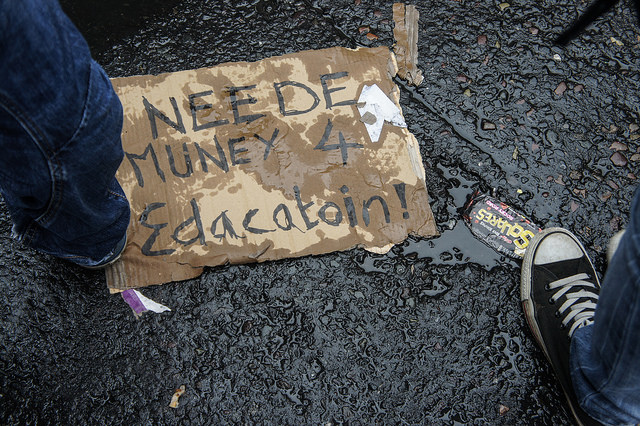Second only to the UK, Irish third-level students pay the second-highest fees in Europe, according to a new report by the European Commission.
The report showed Ireland in the fee category of €1,001 to €3,000. But the second highest to Ireland was the Netherlands with €2,006, showing that Ireland is €1,000 more expensive than any other of the eight countries in the same fee bracket.
The National Student Fee and Support Systems in European Higher Education 2017/18 report also highlighted the differences between support mechanisms in different countries. Of the 42 countries that were looked at, 17 offer tax relief for families, special allowances for families or both to help with the cost of college. In Ireland, some indirect tax relief is offered for the expenses paid for tuition fees.
Looking at loan schemes across Europe, 29 of the 42 education systems make it available to possible students to take out repayable loans. Only five per cent of students in 15 of these systems actually take out a loan, whereas the rest range from seven per cent in Estonia to 92 per cent in England.
However, Ireland is in the second-highest in the support-paid-to-students bracket – €3000 to €5000 is available on a needs-based system for undergraduate students through SUSI. In the same bracket is Norway, Italy, Austria, Northern Ireland and the Netherlands. The only two other countries that provide more financial support to students are Germany and Switzerland. The average need-based grant in Germany is €5,568. However, students do not pay any contribution fee or tuition fee in Germany, other than a small administration fee.
Compared with Germany, international students, defined as non-EU students, pay an average of €1,500, whereas the report notes that, in Ireland, non-EU students typically pay in excess of €6,000. Postgraduates in Germany do not pay tuition fees either, whereas the range of postgraduate tuition fees in Ireland is €4,000 to €30,000.
Finland, Norway, Sweden, Denmark, Germany, Greece, Cyprus, Malta and Scotland are the only countries out of the 42 surveyed to have no fees for undergraduates, called “first-cycle students”.
Ireland is currently considering a new funding model for the higher education sector. Despite calls from some economists for the introduction of a loan scheme, Irish politicians have so far seemed reluctant to introduce a system that has come in for criticism in the UK in the last several months.
Amid calls for a “consensus” on the issue from the Minister for Education, Richard Bruton, Fianna Fáil have come out expressing deep scepticism for loan schemes, while in September, Taoiseach Leo Varadkar said he wouldn’t want to see UK-style loans introduced to Ireland.
Students have led the call for publicly funded education. In October, thousands of students took to the streets for the Union of Students in Ireland’s march for education, calling on the government to increase funding for the sector and to choose an option from the Cassell’s report delivered in July 2016.







